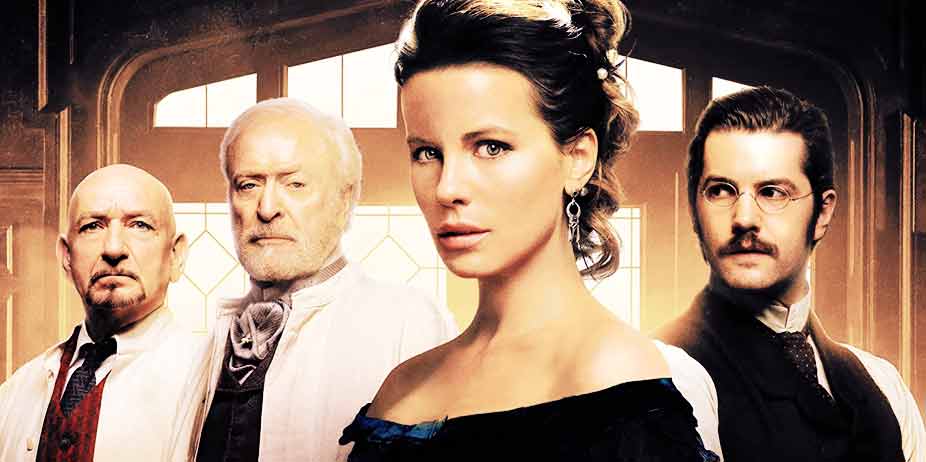 Stonehearst
Asylum (2014)
Stonehearst
Asylum (2014)
Mental asylums have long held both a stigmata and an appeal for modern audiences. In the Victorian period, they were shameful places of abuse and disrepute where it was easy enough to lock away an unwanted relative for a nefarious purpose. In this film, the asylum is the backdrop while the characters emerge at the forefront. One of its characters asserts that everyone is mad... but only a few are mad enough to admit it. He, and the film itself, are playing mind games with us as only an adaptation of Edgar Allen Poe can.
Young Edward Newgate (Jim Sturgess) is a bright-eyed idealist when he arrives at the remote Stonehearst Asylum. He has always dreamed of improving conditions for mental patients and is at once captivated by the unusual practices of the head physician, Dr. Silas Lamb (Ben Kingsley). Unlike most of his contemporaries, Lamb permits his patients a certain amount of leniency. Many of the patients are un-medicated and allowed to showcase "their natural self." Others seem surprisingly sane, so much so that Edward mistakes a few of them for the staff.
Even so, there is something surreal about the place and not quite right. His attention is captivated by Eliza Graves (Kate Beckinsale), who suffers from symptoms of hysteria and has been committed by her husband for violently assaulting him. She is beautiful, talented, and mysterious ... and things take a sinister turn when she drags him away from the company on his first night and begs him to leave. "Steal a horse from the stables," she says, terror in her eyes, "and get away as fast as you can!" But he chooses to stay and in doing so, unearths a terrible secret that threatens his very sanity.
For a film that never had a wide release and is relatively unknown, it's brilliant ... an atmospheric tale of twists and turns, unexpected revelations and a magnificent cast that also includes Michael Caine, David Thewlis, and other British thespians. It shifts between being a horror story and a thriller, a romance and an exploration of archaic medical practices at the turn of the century. Its characters are multi-leveled and nuanced, complicated yet also human. There is a sense of ominous dread throughout that builds into a series of smaller revelations that lead into a twist conclusion that is morbidly wonderful. It is well written and beautifully executed... and one of the more enjoyable viewing experiences I have had in a long time.
Not merely does it entertain, it invites us to ponder the former medical procession, its barbaric methods, and humanitarian questions. It showcases two different approaches to mental insanity and allows us to see the negatives and positives of both. And then, when we are quite involved, it tugs the rug out from under us one last time and leaves us full of questions ... not unhappy ones, but unnerving ones. It has a satisfactory ending that allows us to conclude what happens next, closure but also a sense that this story is not over ... not yet.
Sexual Content:
Medical drawings of a woman's sex organs are on a blackboard in
the back of one scene; men discuss symptoms of "hysteria" as
relating to her reproductive cycle. A man mentions a woman
having panic attacks over her husband's "abhorrent sexual
practices." A man makes a crude gesture and joke about how he
was conceived.
Language:
A handful of profanities and several abuses of God's name.
Violence:
Patients are electrocuted (one to mental incoherency), doused in
water, and strapped down on tables. A flashback shows a soldier
shooting injured young soldiers in the head (blood spatter). Men
struggle with one another, pounding each other into walls and
trying to strangle one another. A man falls from a cliff; a dead
body is revealed with knife wounds in his back.
